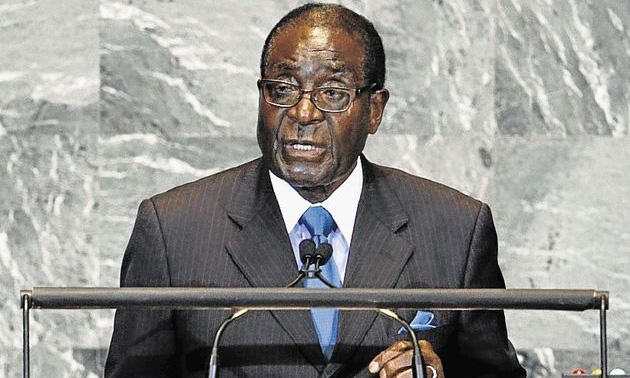
President Robert Mugabe’s government will face one of its biggest tests in over six months when civil servants go on strike tomorrow demanding their 2016 bonuses.
BY XOLISANI NCUBE

In sign that the government was panicking over the impending strike, Public Service and Social Welfare minister Prisca Mupfumira resorted to threatening union leaders and civil servants that would heed the job boycott calls “We have deployed inspectors across the country and anyone not working will face the consequences,” she said.
“The strike, or whatever they are calling it, is illegal because we are still negotiating.
“This is blackmail. We will not allow such action to go unchallenged.
Mupfumira told The Standard that, at law, for civil servants to embark on a strike, negotiations between the two parties should reach a deadlock at least three times. She said no such deadlock had been reached.
“What these civil servants are doing is negotiating in bad faith,” she said.
“We had agreed that we should meet on Monday [tomorrow] to map a way forward after we had agreed to go back and consult our different constituencies.
- Chamisa under fire over US$120K donation
- Mavhunga puts DeMbare into Chibuku quarterfinals
- Pension funds bet on Cabora Bassa oilfields
- Councils defy govt fire tender directive
Keep Reading
“The main thrust of the meeting is that we report back what would have been discussed and agreed upon by the various stakeholders,” the minister added.
“We know that a strike is their constitutional right, but they are process that ought to be followed.”
Mugabe, who is receiving treatment for an unknown ailment in Singapore,last year made a commitment that the government would pay the 13th cheque to its restive workers after Finance minister Patrick Chinamasa announced that it had been suspended because Treasury’s coffers were dry.
The bonuses were due last November but the government has not come out clearly on how it intends to pay the civil servants who have rejected an offer to give them residential stands in-lieu of cash payouts.
Civil servants union leaders yesterday although the government had declared the job action illegal, they were going ahead with what could be the biggest strike since July last year when a job boycott brought the country into a standstill.
According to a resolution of a Apex council meeting, an umbrella body of all non-uniformed state workers, civil servants agreed to stage a one day strike while waiting for the outcome of a meeting between government and their representatives on payment of bonuses that will be held tomorrow.
“The Apex council advises all its members to sit- in/withdraw their labour on the 6th of March 2017 in anticipation of the bonus meeting with government on the same day whose feedback shall determine the next course of action,” the civil servants meeting resolved.
The government—which is battling to secure financial resources to meet daily state needs due to continued economic decline, had offered stands in exchange of cash payment for the 13th cheque.
The workers have rejected the stand offer as bonus payment saying while they need land, the process should not be mixed.
Civil servants accused the government of using state media to malign union leaders as it tried to arm twist union leaders into accepting the offer to give their members housing stands instead of cash.
“In the same vein, the Apex council wishes to advise the minister of Public Service and Social Welfare (Prisca Mupfimira) to always consult with unions first before rushing to the media,” the union stated.
Initially the civil servants had organised a demonstration against government’s failure to pay them bonuses but they now want to withdrawal labour until their 2016 bonuses are paid in cash.
In July last year, Zimbabwe was brought to a standstill after civil servants joined a stay away fronted by social movements such as #ThisFlag and Tajamuka who were protesting against the collapse of the economy and corruption.
Civil servants were not happy with delays in the payment of their salaries. The delays have since become the norm as the government continues to struggle to raise revenues.











